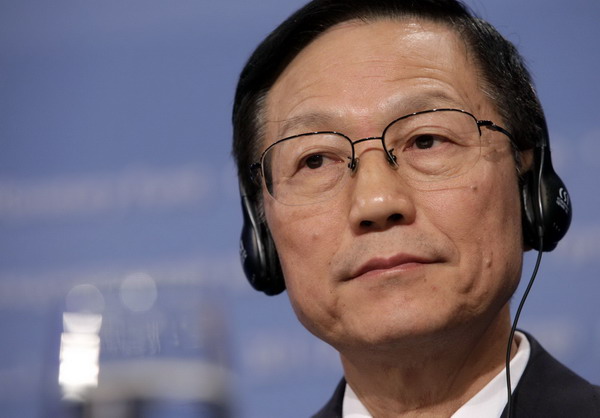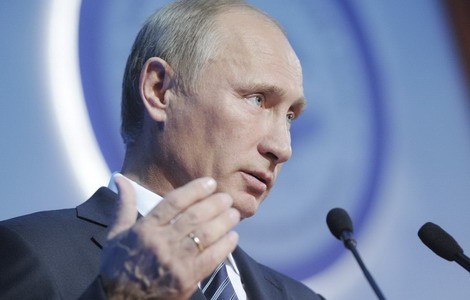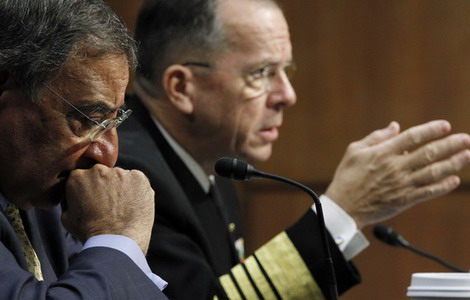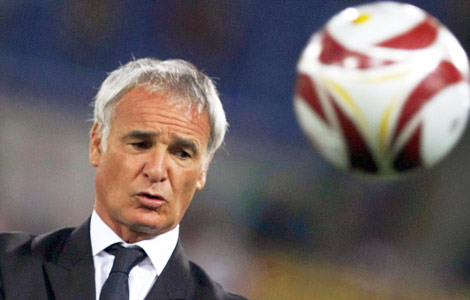BRICS countries urge IMF to speed up reforms
Updated: 2011-09-23 13:32
(Xinhua)
|
|||||||||||
|
 China's Finance Minister Xie Xuren attends the BRICS finance ministers' news conference during the annual International Monetary Fund (IMF)-World Bank meetings in Washington Sept 22, 2011. [Photo/Agencies]
|
"We are concerned with the slow pace of quota and governance reforms in the IMF," economic leaders of the five countries said in a joint communique after they emerged from the IMF and World Bank 2011 annual meetings in Washington. "The implementation of the 2010 reform is lagging."
In 2010, the 187 member nations of the IMF and its sister international financial institution, the World Bank, agreed to shift quota from advanced economies to emerging market and developing economies. The IMF also vowed to strengthen its surveillance, a major part of its governance reform.
The process of these historic reforms, however, remain slow due to legislative procedure and other barriers among the member countries.
"We must also move ahead with the comprehensive review of the quota formula by January 2013 and the completion of the next review of quotas by January 2014," said the communique. "This is needed to increase the legitimacy and effectiveness of the Fund."
They also called for the World Bank to mobilize more resources to increase their assistance to developing countries.
Christine Lagarde, IMF Managing Director said Thursday that global economy has entered into a "dangerous new phase" and nations must work together to meet the growing risks.
The BRICS countries said that the immediate problem of world economy is "to get growth back on track in developed countries."
They said that "it is necessary to maintain international policy cooperation and coordination" and be "committed to working with the international community."
They stressed they are "open to consider, if necessary, providing support through the IMF or other international financial institutions in order to address the present challenges to global financial stability, depending on individual country circumstances. "
The communique also urged advanced economies to adopt " responsible macroeconomic and financial policies, avoid creating excessive global liquidity and undertake structural reforms to lift growth, create jobs and reduce imbalances."
Related Stories
Warnings mount on euro crisis, BRICS mull more aid 2011-09-23 06:14
South Africa's role in BRICS 2011-09-15 07:45
BRICS an overhyped challenge to US power 2011-07-26 16:13
Hot Topics
Organ transplant bonds mother and son
Editor's Picks

|

|

|

|

|

|







